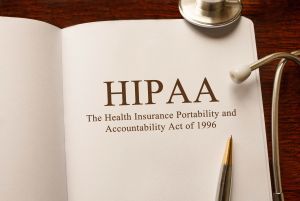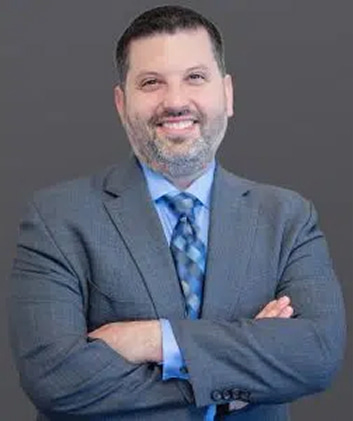Summary:
If you divide your time between Florida and another state, your advance healthcare directive must be carefully structured to work in both places. Differences in witnessing rules, document language, and surrogate authority can cause hospitals to delay or reject unfamiliar forms. Creating coordinated directives that meet the requirements of both jurisdictions helps ensure your medical wishes are honored. Boca Raton Probate Attorneys helps dual-state clients prepare healthcare documents that are legally sound, consistent, and reliable wherever they receive care.

If you divide your time between Florida and another state, your medical plan needs to work in both places. You may own homes in two jurisdictions, receive healthcare from different providers depending on the season, and be subject to varying state laws. This is especially common for retirees who spend winters in Boca Raton or elsewhere in Palm Beach County while maintaining primary or family ties in a different part of the country.
Advance healthcare directives are not automatically “portable.” Many states honor valid out-of-state directives. However, key differences in language, formality, or agent authority can lead to hesitation, delay, or even rejection by a hospital or provider unfamiliar with your documents.
What Is An Advance Healthcare Directive?
An advance healthcare directive is a written document that allows you to name someone to make medical decisions for you if you become incapacitated. It also gives you the opportunity to outline your preferences for life-sustaining treatment, pain management, resuscitation, and other critical care choices. These instructions help guide your doctors and loved ones during serious or sudden health events.
Each state approaches these documents slightly differently. Some use a single form for both the designation of a medical agent and care instructions. Others require separate documents or use different terminology. These variations can create confusion, especially if you are receiving treatment in a state that is unfamiliar with the format you used.
Common Problems For Dual-State Residents
Without proper planning, your directive may not work as intended outside the state where it was created. Here are the most frequent issues faced by dual-state individuals:
Signature & Witnessing Requirements Vary
Florida requires two adult witnesses, and only one may be a family member. Some states, however, require notarization instead. Others impose more restrictive witness rules, particularly if the named healthcare surrogate is also a beneficiary or relative.
A directive that satisfies one state’s requirements may not appear legally valid in another. This can be especially true in an emergency room setting where time is limited and unfamiliar documents raise red flags.
Document Language May Be Unfamiliar
Each state has its own statutory forms or default templates. While you are not required to use them, many facilities train staff to recognize and rely on their own state’s version. If your document uses unfamiliar language or titles (for example, calling your surrogate a “healthcare proxy” rather than an “agent”), the hospital may delay honoring it while legal review or family clarification takes place.
Healthcare Surrogate Authority Can Be Limited By State Law
Florida allows a healthcare surrogate to access medical records and authorize treatment decisions once a physician declares you incapacitated. Other states may grant more or less power to agents by default. This affects when and how your surrogate can act, especially if local providers question their authority.
Suppose your surrogate lives in one state and you are hospitalized in another. Their ability to act on your behalf may depend on whether your directive is accepted and whether it complies with local law.
Are Directives From Other States Valid In Florida?
Florida generally honors directives that were validly executed in another state. According to Florida law, as long as the document complies with the law of the state where it was signed, it is treated as valid.
However, “valid” does not always mean “effective.” A New York directive may technically be recognized in Florida, but if it names a healthcare proxy without spelling out specific powers, a hospital may hesitate to rely on it during a fast-moving emergency. The same goes for a California advance directive that was notarized but lacks the witness structure preferred in Florida.
This is why many dual-state residents choose to update or supplement their documents after establishing residency or spending significant time in Florida.
Should You Create Separate Directives?
If you regularly live in two states and receive medical care in both, you may benefit from preparing two separate directives. This can avoid confusion and ensure that local providers in either state receive a document that feels familiar and meets their expectations.
When taking this route, it is critical to coordinate both documents. They should:
- Name the same surrogate (unless you intentionally designate different agents).
- Contain consistent care instructions.
- Avoid conflicting terms, such as contradictory statements about end-of-life care.
This approach creates clarity and avoids duplication of authority. It also ensures that either directive can stand on its own, depending on where the emergency occurs.
Coordinating Medical & Estate Planning Across Borders
An advance directive is just one part of a broader plan. To be truly effective, it needs to work in tandem with your other legal and financial documents. When you split your time between states, even small differences in state laws can affect how those documents are interpreted. A strong, cross-border plan typically includes:
- A power of attorney that authorizes someone to manage accounts, pay bills, or handle insurance during periods of incapacity.
- Medical release forms under HIPAA that allow your surrogate to access health records and communicate directly with doctors.
- A trust or will that outlines how your property is handled if you become unable to manage it yourself.
- Physician-approved orders, such as Do Not Resuscitate forms, that reflect your current medical preferences and are recognized by local providers.
When you live in multiple states, these documents may need to be reviewed to ensure they are enforceable and consistent in each jurisdiction. For example, your power of attorney may grant someone access to health insurance or bank accounts needed to arrange care. If that authority is only recognized in one state, your family could face delays or legal barriers.
Tips For Dual-State Medical Planning
When you live in more than one state, your advance directive needs to work in both places. Minor differences in language, format, or access can cause unnecessary delays. Taking a few simple steps now can make your directive more reliable and easier to enforce, wherever you receive care:
- Use straightforward language – Avoid technical or state-specific legal terms. Write your preferences in plain English so medical teams in any location can understand them without hesitation.
- Include full contact details – Be sure your healthcare surrogate’s phone number, email address, and mailing address are clearly listed to help providers reach them quickly.
- Give your doctors a copy – Share your directive with physicians in both states and ask them to add it to your medical file. This removes confusion and speeds up response time.
- Review your plan regularly – Life changes, legal updates, and medical preferences can shift over time. A yearly review keeps your documents current and effective.
- Keep a wallet card – Carry a small card that lists your healthcare surrogate, a brief note about your directive, and where to find a complete copy.

These small actions can make the difference between a plan that works and one that causes delay or uncertainty. When you move between states, your planning should move with you, clear, current, and easy to follow.
How Boca Raton Probate Attorneys Helps Dual-State Clients
Dividing your life between two states should not complicate your medical planning. Whether you spend winters in Boca Raton or rotate between homes, we help ensure your documents keep up with you. That includes working with families managing care for aging parents who move seasonally or need treatment across state lines.
Boca Raton Probate Attorneys helps prepare advance directives that meet Florida’s legal standards and hold up when you are out of state. We coordinate with your other advisors as needed and review your broader estate plan to make sure everything works together. Our team ensures your wishes are clear, your authority is protected, and your plan travels as well as you do.




